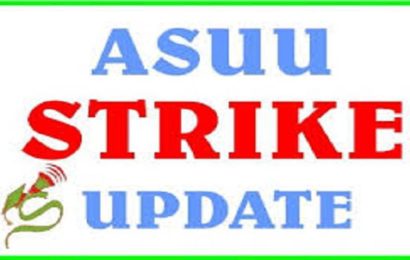A REVIEW OF LIABIILITY AND FIDUCIARY RESPONSIBILITY IN THE WORK PLACE; AN OPEN LETTER TO THE NIGERIAN EMPLOYER

“Statistics show that a worker dies every 15 seconds while 153 workers have work-related accidents every 15 seconds globally” – 2017 World Day for Safety and Health at Work
With the above words, Mr. Aly Cisse, the Chief Technical Advisor of the Nigerian International Labor organization, threw into sharp relief the deplorable state of occupational safety and health worldwide, underscoring the need for mechanisms of legal redress occasioned by the negligence of the employer.
That Nigerian employers neglect their duty of care where employees are concerned goes without saying. The labor market is notorious, for its lack of reciprocity in any form beyond the payment of monthly dues owed to its workers. This short coming is apparent in the almost daily occurrence of work place incidences; the fall out of which has to be borne by an already impoverished work force, whose only crime is the performance of duties in accordance with instruction.
The market is replete with examples; from delivery drivers, falling victim to errant vehicles, injuries sustained by factory workers operating faulty machinery, death by fire in workshops and manufacturing complexes ill suited to purpose, and poor orientation as to the operation of hardware causing long term, if not life altering damage to workers.
Occasions such as these, are often met with disdain by management, who do very little by way of amelioration, and become irate at attempts to make them advance compensation. It has become the norm overtime that the more damage is sustained by staff members in the course of duty, the less likely his superior is to service medical expenses. Should the staff member try to press advantage, he might soon find his employment terminated altogether.
This scene plays itself out repeatedly, against the back drop of grueling working conditions, lack of adequate insurance/medical coverage, inadequate work place orientation and a general insensitivity and self-centeredness of the employer. Studies as recent as 2016, put the annual work-related death rate of Nigerians at about 24 fatalities per 100,000 employees; one of the highest in the world. Sadly, this trend continues unabated.
Take for example, the case of Mr. Edochie, an operative retained by Richmond Hill Securities, deployed at Benue confectionaries Nigeria Ltd in Apapa.
Claims as to liability were traded between establishments in the wake of an explosion that caused 173 deaths, left 8 missing, and produced 1 gravely injured survivor – Edochie himself. Richmond Hill made a case for their lack of liability, stating that the now deceased was under the control of Benue Nigeria limited at the time and so they ought to meet his medical expenses. Besides, as they asserted neither the wording of Edochie’s contract nor the budget of their establishment, allowed for such expenses. Edochie would die ultimately liability undetermined, on the floor of a teaching hospital at LUTH.
Charges were never filed, due in part to the porous nature of legislation ostensibly enacted to vouchsafe labor, but mostly to the phenomenon of a disenfranchised semi illiterate populace, unaware that they have rights, are able to enforce them, and in consequence are entitled compensation. The interplay of these factors, has repeatedly freed employers of any obligation they might otherwise have had to their personnel. In a country boasting legal infrastructure as comprehensive as Nigeria’s, this is a tell tale sign of very deep flaws.
A dive, into the existing regulatory framework accommodating this vitiation of care (as set out in [Donoghue v Stevenson [1932] UKHL 100]), reveals a dependence on pieces of legislation out of sync with the realities of the Nigerian work place. Sections of the Factories Act Cap F1, LFN 2004, deal with the obligations of employers as regards the safety of the work place, as well as penalties to be leveraged against the incompliant. Unfortunately, this act was originally passed, to address the conditions in factories and industries, and is ill suited to environments where heavy machinery is not the norm.
Victims seeking recourse to this legislation, will have to do so by inference; equating duties imperative to one, with responsibility incumbent on all. A perusal of it finds the penalties woefully inadequate, unrealistic where fiscal benefit to victims are concerned and lacking in provisions for other categories of employees. How else does one countenance allotting N5000 for the medicare of a victim or the alleviation of burden, in the event of his demise?
Thankfully the more contemporary Workmen’s Compensation Act Cap W6, LFN 2004, vastly improves the Factories Act’s somewhat linear understanding of an “employee”. Although it goes into great length to set a regime of compensation for workmen, it’s somewhat unrealistic as to compensation; ultimately proffering a workable restitutionary framework but accomplishing little else. Its methods, of calculating compensation, are inconsistent with the economics of modern medicine; especially for the income bracket it most serves. Also, enforcement in the wake of incompliance is likely to be sluggish when one takes into consideration the tedious nature of court processes today.
This has not gone unnoticed by government, as evidenced by senate’s attempts to enact a more modern law. The bill termed Labor, Safety, Health and Welfare (LSHW) 2012, seeks to establish the National Council for Occupational Safety and Health tasking it with: enforcing and implementing OSH work place measures; promoting the protection of lives and properties; encouraging OSH awareness; facilitating inspection of the workplaces; monitoring the compliance with OSH measures under the law e.t.c
The LSHW Bill is the most exhaustive OSH legislation to date, deficient only in presidential approval, to give the force of law.
In the interim, the Employees Compensation Act Cap E7A, LFN 2011 [ECA] makes up for the deficit by allowing victims of work place accidents broad access to compensation – but only that. Its strength is also its weakness, as the act is absolutely silent on OSH measures one should expect from employers. The utility of the act, comes after the fact creating, “an open and fair system of guaranteed and adequate compensation for all employees or their dependants in the case of any death, injury, disease or disability, arising out of the course of employment”
To make matters worse – in yet another failing – the predominant portions of the masses are unaware that these benefits even exist. Standards across the board are irregular, with the more enlightened employees of private companies being aware of rights that causal, ghost workers are not. The former boast of relatively good offices and facilities, health care, and wages; all advantages not enjoyed by the latter who ironically, make up the greater percentage of labor.
Thus, the state of play is one of “all encompassing torpor”; as desensitized workers, struggle to make ends meet within a regime that they have grown disenchanted with for neither apprising them of their rights, nor catering to their needs.
Proprietors of businesses assist this desensitization; operating from the blind when it comes to OSH standards, duty of care and what recourse to the law existing statutory instruments proffer to employer and employee alike. Sometimes, these proprietors shirk their due diligence deliberately, keeping their staff members incognizant to avoid having to service liability in the event of “manifest negligence”. Other times, the modus operandi of many establishments is subpar relative to best practices, impeding access to state funded coverage that workmen so desperately need. The more disgruntled among these, find their way to the courts.
At this juncture it bears mentioning, that Acts of the National assembly are not Nigeria’s only source of law. Statutory instruments often find interpretation within precedential law. OSH matters of dispute make their way before the industrial court whose jurisdiction it is to adjudicate “trade disputes, labor practices, matters related to the Factories Act, Trade Disputes Act, Trade Unions Act, Workmen’s Compensations Act and appeals from the Industrial Arbitration Panel and all other employment matters.

In Nigeria, judicial precedent requires all employers to take responsibility for preventing workplace injury and disease. Legally they are bound to take reasonable measures for the protection of their workers. This usually entails the maintenance of a healthy and safe work environment; provision of hazard information, proper safety equipment, training and competent supervision. When this is not done, the victim might lay claim to a tort of negligence if he can prove duty, breach, causation, and damage [Universal Trust Bank of Nigeria v. Fidelia Ozoemena (SC. 129/2001) 2007].
Thus we would not be wrong in asserting a duty of care; devolving on the Nigerian employer – as clearly set out in case law if not in statute. OSH standards, far from being a luxury, ought to be the norm; with compensation being mechanical as opposed to a premeditated process. Haste should be made by government in passing / assenting to applicable bills and complying with best practices as seen other jurisdictions.
A scenario is envisaged, where employers of labor are compelled by appropriate codes and regulations to cater to OSH standards including;
⦁ Maintaining workplaces and systems of work so workers are not exposed to hazards that come with the job. This involves providing information about any hazards and risks arising from the work to be done;
⦁ Providing instruction, training and supervision to all employees so they are able to work safely;
⦁ Consulting and co-operating with safety and health representatives (if any) and all employees about safety and health; ensuring that adequate precautions are taken by a workers on a day to day basis;
⦁ Where it is not ⦁ practicable to avoid the presence of hazards, providing adequate personal protective clothing and equipment without any cost to workers; and ensuring safety and health in relation to plant and hazardous substances so workers are not exposed to hazards;
⦁ Ensuring that the safety and health of people who are not your workers (i.e. non-employees) is not affected by a hazard or the system of work.
⦁ Demonstrating, through your leadership and supervision, that good safety and health practices are a priority. For example, make it clear to all levels of staff that safety and health must not be compromised by the need to ‘get the job done’ – you could make safety and health a performance measure.
⦁ Having all levels of staff involved in training, planning, setting objectives, evaluating and reviewing organizational performance;
⦁ Giving workers and contractors the authority and the resources to achieve the safety objectives set for them; however, it is not sufficient to tell someone they are accountable, without setting up the processes for this to work properly;
⦁ Encouraging workers to speak up and ask questions about any safety and health instructions that they do not understand;
⦁ Establishing, safety and health representatives and committees at the workplace. Making safety and health a standing agenda at workplace meetings.
Employers should be mandated, to provide a high standard of safety and health at their workplaces, and ensure as far as practicable, that employees are not injured or harmed in the line of duty. If indeed prevention is better than cure, then the objective should be for compensation to be the exception and not the norm. While a sound restitutionary frame work is welcome, reference to it should be sparing. Instead, effort should be made to ensuring that work culture/ethic is predicated on the aforementioned standards nationwide.
These standards should have by way of support a dedicated parastatal, empowered to ensure compliance, enforcing sanction in the absence of same. Government could go one step further, insisting on these measures as perquisites that must be fulfilled before inception of any establishment.
This applied to an accurate comprehensive register of commercial concerns great and small should help alleviate labors frustrations.
Ohuntan Oluwatobi Oluwa – Occupational Health Safety Empowerment Centre (OHSEC) Nigeria.









